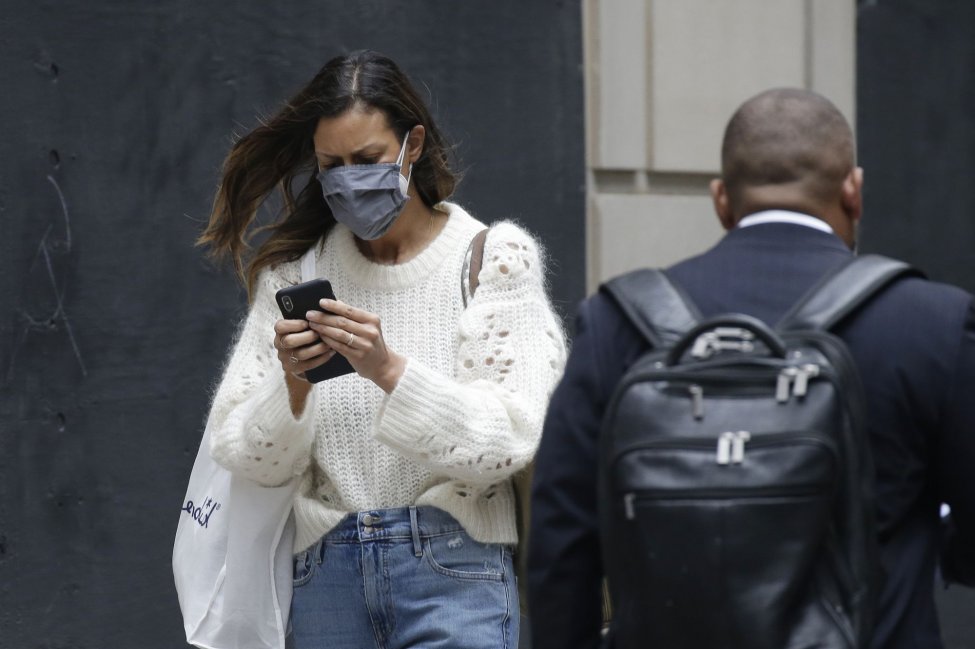Dec. 1 (UPI) — Omicron has arrived in the United States but its effects on the scope of the COVID-19 pandemic remain unknown, experts said Wednesday.
While the the first U.S. case of the strain was reported in California on Wednesday, the Omicron variant already had been found in 20 countries, and the number of people with it could increase up as more virus samples are genetically sequenced.
Researchers and doctors have sounded the alarm ahead of an avalanche of cases because of the “alarmingly escalating epidemic” observed in South Africa, where the variant appears to have originated. That country is now seeing a COVID-19 test positivity rate of 16%, infectious disease specialist Jacob Lemieux said.
“There is considerable uncertainty that Omicron will outperform Delta in terms of spread,” Lemieux, a staff physician at Massachusetts General Hospital in Boston, said on a call with reporters Wednesday.
However, the “likelihood of scenario with widespread spread has increased,” given the questions regarding how currently available COVID-19 vaccines will perform against Omicron, said Lemieux, a member of the Massachusetts Consortium on Pathogen Readiness, which hosted the call.
The origins of the new variant remain unclear, but it is likely that its “mutations may have been accumulating in parts of the world in which genetic analysis and vaccines are not available,” he said.
It still is hard to know whether Omicron will replace Delta as the predominant variant in the United States, Dr. Nahid Bhadelia, founding director of Boston University’s Center for Emerging Infectious Diseases Policy and Research, said on the call.
It is also unclear whether it will cause more severe illness than other strains, though a “more transmissible variant may cause an increase in hospitalizations just because it spreads to more people,” she said.
Even if the available vaccines offer less protection against Omicron compared to other strains, getting vaccinated and receiving booster shots, when eligible, should help boost immune response against the virus, Bhadelia said.
The California and San Francisco departments of public health have confirmed that a recent case of COVID-19 in an individual in California was caused by the Omicron variant, the Centers for Disease Control and Prevention said Wednesday.
The individual was a traveler who returned from South Africa on Nov. 22 and had been fully vaccinated before becoming ill.
The person “had mild symptoms that are improving, is self-quarantining and has been since testing positive, [and] all close contacts have been contacted and have tested negative,” CDC said.
Genomic sequencing was conducted at the University of California-San Francisco, and the sequence was confirmed at CDC as being consistent with the Omicron variant. It is the first confirmed case of COVID-19 caused by the Omicron variant detected in the United States.
The Omicron variant has 50 genetic mutations that separate it from the current dominant strain of the virus, the Delta variant, according to Dr. Jeremy Luban, a professor of molecular medicine, biochemistry and molecular pharmacology at the University of Massachusetts Medical School.
In addition, 32 of the 50 mutations occur on the crucial spike protein that serves as the target for the vaccines from Johnson & Johnson, Moderna and Pfizer-BioNTech, said Luban, who also was on Wednesday’s call.
The Delta variant, which was first identified in the United States last spring and quickly became the “predominant” strain nationally, according to the CDC, has seven mutations in the spike protein compared with the original form of the virus, Luban said.
Because of these spike mutations, “there is likely going to be some disruption in the antibody response to Omicron,” Lemieux said.
“What we don’t know is the magnitude, but we should know that soon,” he said.
On Tuesday, Moderna CEO Stéphane Bancel told the Financial Times that there may be a “material drop” in vaccine effectiveness with the new variant, although the company still is collecting data.
Although all viruses mutate, or evolve, as they spread, “this is a collection of mutations like we’ve never seen before in one virus,” Luban said.
Despite the mutations, Omicron is still detectable by currently available tests, he said.
“We’re staring down the possibility of a resurgent wave” of a variant that can “evade the immune response” offered by vaccines,” Lemieux said.
“All of us hoped we would not be here, but that’s where we are.”
